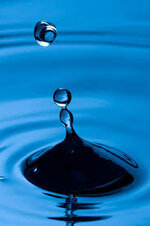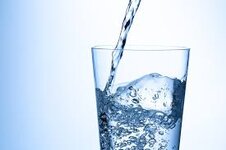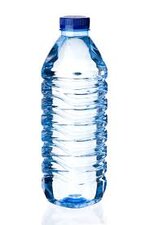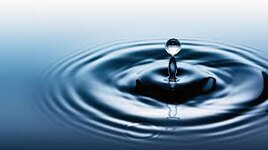Is water wet?
- Thread starter Grog 'Crippled' Leo
- Start date
You are using an out of date browser. It may not display this or other websites correctly.
You should upgrade or use an alternative browser.
You should upgrade or use an alternative browser.
Doug
aaaaaaaaaaaaaaaaaaaaaaaaaaaaaaaaaaaaaaaaaaaaaaaaaa
 Content Team
Content Team Donator
Donator- Apr 19, 2024
- 726
- 1
- 131
- 61
but how do you know water isnt wet if you put 2 water drops together they make each other wet before combining in 1 dropwater makes you wet, it in of itself isnt wet
Dear Curious Thinker,
I hope this letter finds you well. You recently posed an interesting and often debated question: Is water wet? This question may seem simple at first, but upon closer examination, it sparks a fascinating discussion about the nature of wetness itself.
To answer this, we must first define what it means for something to be "wet." Generally, wetness refers to a substance (usually a liquid) adhering to a surface. For example, when you touch a wet cloth, it feels wet because water molecules cling to its fibers.
Now, considering water itself, can we call it wet? Scientifically speaking, wetness is a property that describes how water interacts with other objects rather than a characteristic of water itself. Water is not wet; instead, it makes other things wet by coating them. However, if we were to take a different perspective and argue that water molecules are always surrounded by other water molecules, one could say that water is perpetually in a state of wetness.
In conclusion, while it may seem intuitive to call water wet, the more precise explanation is that water is not wet on its own—it simply makes other things wet. Of course, the debate is all in good fun, and depending on how one chooses to define "wet," different conclusions can be drawn.
Thank you for entertaining this thought-provoking question. I hope this letter helps clarify the discussion.
Sincerely,
[Your Name]
I hope this letter finds you well. You recently posed an interesting and often debated question: Is water wet? This question may seem simple at first, but upon closer examination, it sparks a fascinating discussion about the nature of wetness itself.
To answer this, we must first define what it means for something to be "wet." Generally, wetness refers to a substance (usually a liquid) adhering to a surface. For example, when you touch a wet cloth, it feels wet because water molecules cling to its fibers.
Now, considering water itself, can we call it wet? Scientifically speaking, wetness is a property that describes how water interacts with other objects rather than a characteristic of water itself. Water is not wet; instead, it makes other things wet by coating them. However, if we were to take a different perspective and argue that water molecules are always surrounded by other water molecules, one could say that water is perpetually in a state of wetness.
In conclusion, while it may seem intuitive to call water wet, the more precise explanation is that water is not wet on its own—it simply makes other things wet. Of course, the debate is all in good fun, and depending on how one chooses to define "wet," different conclusions can be drawn.
Thank you for entertaining this thought-provoking question. I hope this letter helps clarify the discussion.
Sincerely,
[Your Name]
Chatgpt we dont need you here we need real sientific answers no AI shjizzleDear Curious Thinker,
I hope this letter finds you well. You recently posed an interesting and often debated question: Is water wet? This question may seem simple at first, but upon closer examination, it sparks a fascinating discussion about the nature of wetness itself.
To answer this, we must first define what it means for something to be "wet." Generally, wetness refers to a substance (usually a liquid) adhering to a surface. For example, when you touch a wet cloth, it feels wet because water molecules cling to its fibers.
Now, considering water itself, can we call it wet? Scientifically speaking, wetness is a property that describes how water interacts with other objects rather than a characteristic of water itself. Water is not wet; instead, it makes other things wet by coating them. However, if we were to take a different perspective and argue that water molecules are always surrounded by other water molecules, one could say that water is perpetually in a state of wetness.
In conclusion, while it may seem intuitive to call water wet, the more precise explanation is that water is not wet on its own—it simply makes other things wet. Of course, the debate is all in good fun, and depending on how one chooses to define "wet," different conclusions can be drawn.
Thank you for entertaining this thought-provoking question. I hope this letter helps clarify the discussion.
Sincerely,
[Your Name]
it isnt wet, like niox said, it makes other things wet. Water is a liquid that in its normal state is not dry therefore it isnt wet becuase if something is wet then that would mean it was dry in the first place, so how can water be wet if it was never dry?!?!?
the water would be in a superposition of being dry and wet at the same time, or something like that idkit isnt wet, like niox said, it makes other things wet. Water is a liquid that in its normal state is not dry therefore it isnt wet becuase if something is wet then that would mean it was dry in the first place, so how can water be wet if it was never dry?!?!?
Doug
aaaaaaaaaaaaaaaaaaaaaaaaaaaaaaaaaaaaaaaaaaaaaaaaaa
 Content Team
Content Team Donator
Donator- Apr 19, 2024
- 726
- 1
- 131
- 61
So, water itself is not wet. It is a substance that makes other surfaces/object wet.
"Most scientists define wetness as a liquid's ability to maintain contact with a solid surface, meaning that water itself is not wet, but can make other sensation. But if you define wet as 'made of liquid or moisture', as some do, then water and all other liquids can be considered wet."






 Senior Game Master
Senior Game Master